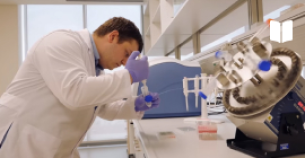Several environmental awareness programs are implemented at the university in order to reduce unnecessary water consumption and maximize the efficiency of water usage. Among the practices and measures used to reduce water consumption are the installation of aerators in sinks, the separating of siphon chambers. Additionally, the university has a gray water system. On campus, gray water is used in two different ways.

An in-house 100-ton tank is used to collect hand-washing water from sinks. Sand filters are used to filter the water before it is pumped into stainless steel tanks that can hold up to 10 tons. Once the liquid is passed through ultrafilters, it is pumped into a 40-ton tank for storage. This facility also chlorinates water. Water is sent to both the irrigation system in the garden and all the WC reservoirs, which saves water.
Furthermore, rainwater and foundation drainage waters are collected and chlorinated in a 40-ton warehouse; filtered through sand filters, they are sent to garden irrigation and WC reservoirs, thus reducing wastewater consumption.
Drinking water is provided free of charge on every campus corridor by the university.



